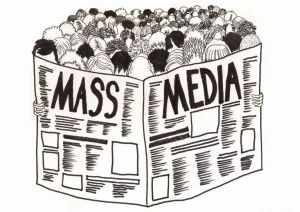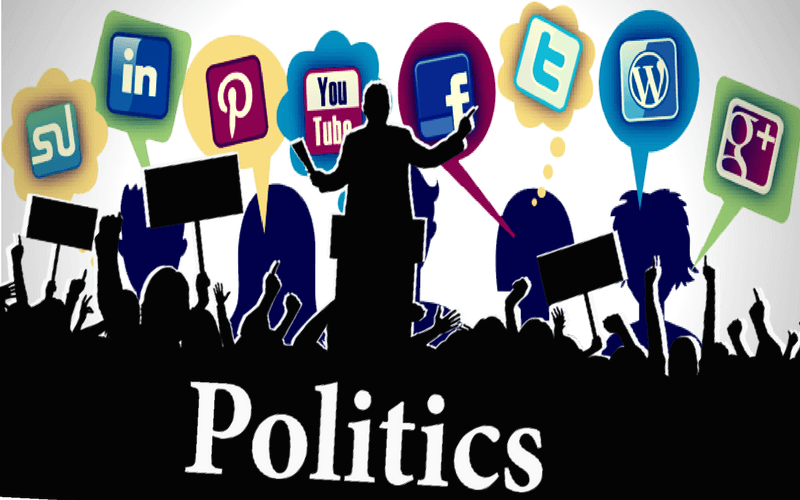The Role of Social Media in Politics

In recent years, the landscape of political communication has undergone a significant transformation, largely due to the advent and proliferation of social media platforms. These digital spaces have not only reshaped how political discourse is conducted but have also had a profound impact on political campaigns, voter mobilization, and the overall dynamics of political engagement. As we delve into the multifaceted role of social media in politics, it becomes imperative to explore its influence, assess its impacts, and understand the challenges it poses to political discourse.
Introduction to Social Media in the Political Sphere
Exploring the role of social media in shaping political discourse reveals a complex landscape where information, ideas, and ideologies converge and clash. Social media platforms have democratized information dissemination, allowing individuals, political figures, and parties to communicate directly with the public without the traditional gatekeeping roles played by mainstream media. This direct line of communication has enabled a more engaged and informed citizenry, albeit not without its pitfalls. The very nature of these platforms, which prioritize engagement-driving content, often results in the amplification of sensational or polarizing material, thus shaping political discourse in profound ways.
Analyzing the impact of social media on political campaigns, it becomes evident that these platforms have revolutionized campaign strategies. Social media allows for targeted advertising, real-time engagement with voters, and rapid response to political developments. Campaigns can now reach specific demographics with tailored messages, engage in fundraising activities with unprecedented efficiency, and mobilize supporters with ease. This level of granularity in targeting and engagement was unimaginable in the pre-social media era, highlighting the significant role these platforms play in modern political campaigns.
The Impact of Social Media on Political Campaigns
Exploring the role of social media in shaping political narratives, we find that these platforms have become the primary arena for narrative construction and dissemination. Political actors leverage social media to craft and spread narratives that resonate with their target audiences, often bypassing traditional media channels. This direct narrative control can significantly influence public perception and opinion, making social media a powerful tool in the arsenal of political campaigns.
Assessing the role of social media in voter mobilization efforts, it is clear that these platforms have enhanced the ability of campaigns to mobilize supporters. Through targeted messages, calls to action, and the viral nature of social media content, campaigns can effectively rally their base, encourage voter registration, and drive turnout. This mobilization extends beyond mere encouragement to vote, encompassing fundraising, volunteer recruitment, and grassroots organizing, all facilitated by the expansive reach and engagement capabilities of social media.
Social Media as a Tool for Political Mobilization

Exploring the role of social media in political campaign strategies, we observe that these platforms are integral to the modern campaign playbook. From the early stages of candidacy announcements to the final pushes for voter turnout, social media is utilized to strategize, execute, and adapt campaign tactics. The real-time feedback loop provided by social media analytics allows campaigns to refine their strategies on the fly, tailoring their messages and outreach efforts to maximize impact.
Assessing social media’s role in enhancing political participation and mobilization, it becomes apparent that these platforms have lowered barriers to political engagement. The ease with which individuals can access information, join political conversations, and connect with like-minded individuals has fostered a more participatory political environment. Social media not only facilitates the mobilization of supporters for electoral purposes but also plays a crucial role in organizing around social and political causes, demonstrating its potency as a tool for political engagement and activism.
Analyzing the Role of Social Media in Voter Influence
Exploring the role of social media in shaping voter opinions, we recognize the dual-edged nature of these platforms. On one hand, they provide a wealth of information and diverse viewpoints, contributing to a more informed electorate. On the other hand, the prevalence of echo chambers and algorithmic biases can reinforce existing beliefs and filter out dissenting views, potentially skewing voter perceptions and opinions. This complex interplay between information access and selective exposure highlights the nuanced role of social media in influencing voter behavior.
Assessing the impact of social media on political campaign strategies, it is evident that the adaptability and immediacy of these platforms have made them indispensable to modern political campaigns. Social media’s ability to facilitate rapid dissemination of campaign messages, direct engagement with voters, and real-time monitoring of public sentiment has fundamentally altered campaign dynamics. This shift necessitates a strategic approach to social media, where campaigns must balance message control with authentic engagement to effectively influence voter behavior.
The Challenges Posed by Social Media to Political Discourse

The role of social media in polarizing political opinions globally cannot be overstated. The algorithmic curation of content that favors engagement can lead to the amplification of extreme viewpoints, contributing to political polarization. This environment fosters division rather than dialogue, with social media platforms becoming battlegrounds for ideological conflicts. The challenge lies in navigating this polarized landscape while striving for constructive political discourse.
Social media’s role in spreading misinformation during elections presents a significant challenge to the integrity of political processes. The viral nature of these platforms, combined with the difficulty in verifying the authenticity of information, creates fertile ground for the dissemination of false or misleading content. This misinformation can undermine public trust in electoral processes, distort voter perceptions, and influence electoral outcomes, posing a threat to democratic principles.
Social Media and the Future of Political Engagement
Exploring the evolving role of social media in political mobilization, we anticipate that these platforms will continue to play a pivotal role in shaping political engagement. The integration of emerging technologies, such as artificial intelligence and augmented reality, into social media could further enhance the capabilities of political campaigns to engage and mobilize voters. However, this evolution also necessitates vigilance to guard against the exacerbation of current challenges, such as misinformation and polarization.
Assessing social media’s impact on future political discourse and engagement, it is clear that these platforms have the potential to both enrich and complicate the political landscape. The democratization of political communication, increased accessibility to political engagement, and the potential for enhanced mobilization are balanced by the risks of misinformation, polarization, and the undermining of public trust. The future of political engagement on social media will depend on the ability of platforms, policymakers, and the public to address these challenges while leveraging the positive aspects of digital political communication.
Reassessing the Role of Social Media in Politics
Evaluating the transformative role of social media in political engagement, we find ourselves at a crossroads. The potential of social media to foster a more informed, engaged, and active citizenry is immense. However, the challenges posed by these platforms, including the spread of misinformation, the polarization of political discourse, and the potential manipulation of electoral processes, cannot be ignored. As we move forward, it is crucial to strike a balance between harnessing the positive aspects of social media in politics and mitigating its negative impacts.
The role of social media in politics is indeed a double-edged sword. On one hand, it empowers and mobilizes, on the other, it polarizes and misinforms. As we navigate this complex landscape, a critical reassessment of social media’s role in political engagement is necessary. By fostering an environment that promotes accurate information, constructive discourse, and inclusive political participation, we can leverage the power of social media to enhance democratic processes and political engagement for the future.




